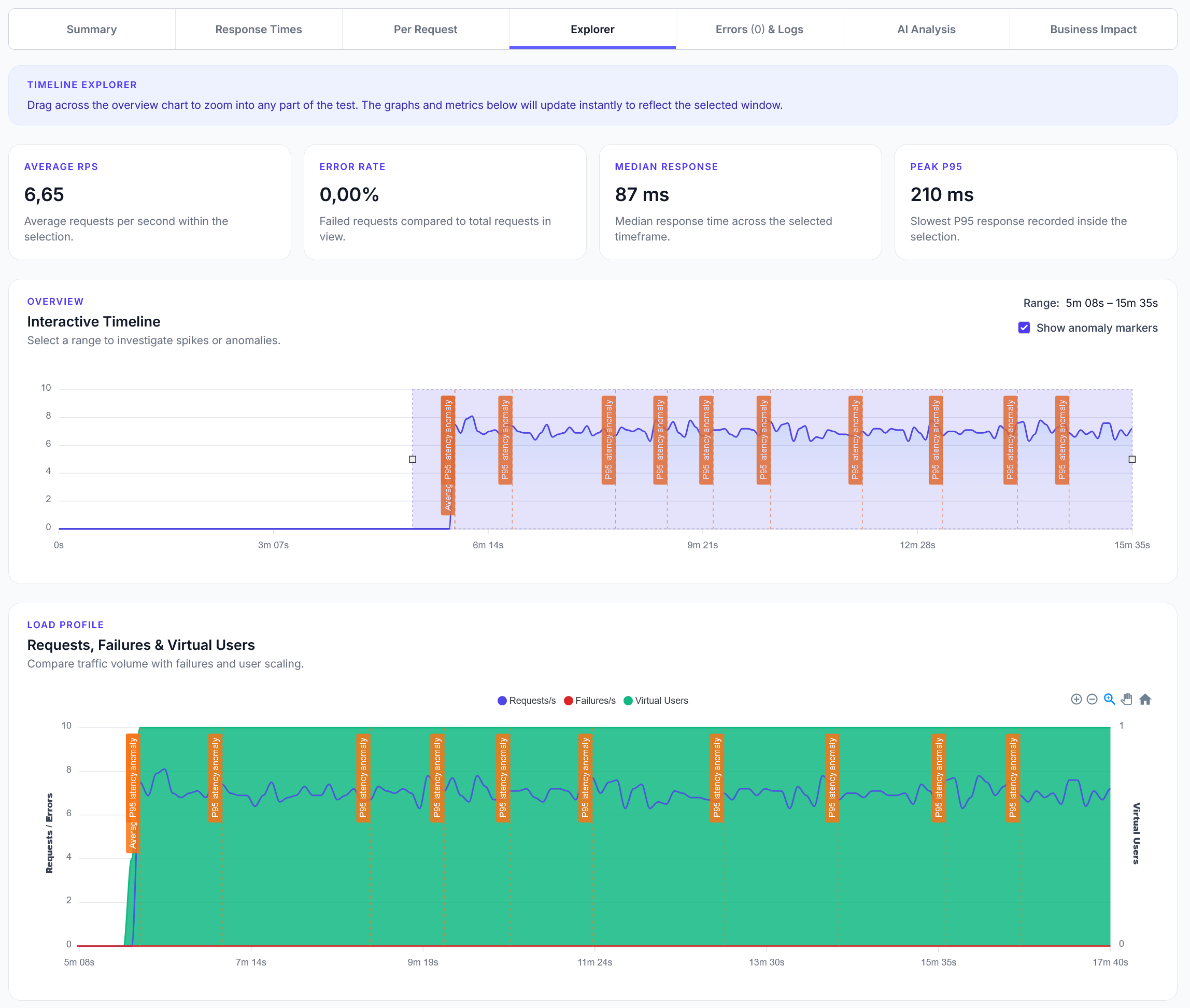
Explorer reports addition
We have added a new Explorer feature to reports, with a timeline scrubber and easy anomaly detection.
Guide on load testing gRPC APIs with LoadForge using Locust.
LoadForge can record your browser, graphically build tests, scan your site with a wizard and more. Sign up now to run your first test.
Load testing gRPC services requires specialized clients that can serialize and send Protocol Buffer messages. With Locust and the GrpcUser from locust-plugins, you can simulate high-throughput gRPC calls and measure performance under load.
# locust.py
import os
import sys
from grpc_tools import protoc
from locust import task, between
from locust_plugins.users import GrpcUser
# Inline .proto definition
proto = '''syntax = "proto3";
package helloworld;
message HelloRequest { string name = 1; }
message HelloReply { string message = 1; }
service Greeter { rpc SayHello (HelloRequest) returns (HelloReply); }
'''
# Write & compile stubs at runtime
with open('helloworld.proto', 'w') as f:
f.write(proto)
protoc.main(['', '--proto_path=.', '--python_out=.', '--grpc_python_out=.', 'helloworld.proto'])
# Ensure current dir is importable
sys.path.insert(0, os.getcwd())
import helloworld_pb2
class HelloWorldUser(GrpcUser):
host = "grpc.server.com:50051"
wait_time = between(1, 3)
@task
def say_hello(self):
# Prepare request
request = helloworld_pb2.HelloRequest(name="LoadForge")
# Call the service
self.call(request, "/helloworld.Greeter/SayHello")
Notes:
locust-plugins, grpcio, grpcio-tools if you wish to test locally.